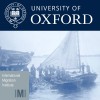THEMIS: Guyanese migration since independence: Migration policies, migrant networks, and postcolonial ties
Historical migration patterns in the Caribbean saw a transformation in the 1960s-70s as many former colonies gained independence and new migration policies were introduced at origin and destination. If some policies potentially may have reduced migration opportunities towards former colonial states, migrant networks and post-colonial ties established before independence may have acted as migration-facilitating factors to sustain migration. Without overlooking important contextual factors at origin and destination, we could hypothesise that border controls and migration policies, migrant networks, and postcolonial ties should explain in part the variations in migration patterns following independence.
To explore this hypothesis, I use data from an in-depth case study of Guyana. In the 1960-2000 period, the overall emigrant stock grew from 6 to 48 percent of the total population, whereas the emigrant stock in the UK fell from over 37 to less than 1 percent during the same period. Immigration policies, negative economic performance and growing racial tensions in the UK have been provided as explanations of such drop. At the same time, less restrictive immigration policies in North America may explain the development of new destinations. But why such a severe drop, unlike other British Caribbean countries? This case suggests that the beneficial connectivity provided by migrant networks and post-colonial ties may in fact have been left ‘unused' as the objectives of migrants evolved and their interest towards the old migration destination declined. This paper considers migration not uniquely as the result of structural forces, but as dynamic responses of individuals to the diverse opportunities created by contextual national and international structures. In so doing, this paper aims to improve our understanding of migration processes and dynamics, the relevance of migration policies, migrant networks and postcolonial ties, and also provide some evidence surrounding the decline of migrant networks.




